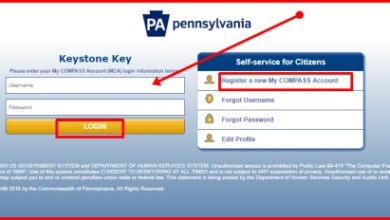Top 14 Best Foolproof Bookkeeping Tips In 2023

Best Foolproof Bookkeeping Tips will be described in this article. Bookkeeping mistakes cost the IRS almost $1.3B in fines alone in 2021. But with these bookkeeping methods, you don’t need to be an accountant or money expert to avoid penalties. You can keep correct records by using these straightforward bookkeeping guidelines, but you should always pay attention to professional guidance. To make judgements that will aid in the success of your business, accurate records are required.
Top 14 Best Foolproof Bookkeeping Tips In 2023
In this article, you can know about Top 14 Best Foolproof Bookkeeping Tips In 2023
1. Keep All personal and business expenses separate

When your business first begins, it could seem more practical to utilise your personal bank account for all transactions or to occasionally use your business credit card for personal purchases. Either of these will cause severe complications in your business and in your bookkeeping. Not only will it waste time because everything later on needs to be separated out, but your personal and business tax obligations are fundamentally different. To keep your personal and commercial liabilities separate, incorporation is one of the main benefits.
If a judge determines that you have mixed your personal and business finances, a situation known as “piercing the corporate veil” could result in you losing liability protection. Keeping all your finances separate protects your private assets against litigation. Besides a business checking account, you should extend a business savings account to set aside funds to handle major needs that crop up — with or without warning.
Make sure to confirm the times of your account to prevent the risk of unforeseen costs because business accounts frequently function under somewhat different regulations than personal accounts, such as with different fees and various criteria for minimum balances and transaction totals.
2. Keep your receipts
It’s vital to save all of your receipts, even though it could seem like a laborious task. Receipts are required to classify expenses and provide evidence in support of your tax deductions. Receipts that are organised and well-documented will help protect you during an audit. Any business expenses of $75 or more must have receipts, and they must be retained for six years. Ask your CPA for any tax guidance you may need. Thankfully, there are numerous solutions available for scanning, classifying, and storing your receipts.
Our current favourites are:
- QuickBooks Online Wave Accounting
- Smart Receipts for Evernote and Expensify
- Genius Scan
- Scan Clear
- Fitfin Budget App Zoho Nice
OCR (optical character recognition) & AI engine learning are features of the top technologies. These capabilities assist in automating data entry, decreasing mistakes and the amount of time required. Just take a picture of the token, verify the details, & move on.
3. Account for cash payments properly

Accurate bookkeeping requires keeping track of cash payments in addition to collecting your receipts. Inaccurate accounting of cash commerce is a major threat for you and your business. The IRS will fine you if you have missing transactions or incorrectly classified transactions during an audit. It doesn’t have to be tough to account for your cash transactions. The majority of bookkeeping programmes also let you keep track of money coming in and going out. To avoid problems in the future, make sure you know how to manage cash in the programme you’re using and keep track of those transactions. Also check Business Meeting Etiquette Tips
4. Learn to Read Your Income Statemen & Balance Sheet
The money entering and leaving your business is shown on your income statement. A balance sheet displays a corporation’s assets and liabilities (what the company owns and owes) at a given moment in time. Utilize the balance sheet to determine whether you can meet your financial obligations.
PAY ATTENTION TO THESE TRENDS:
The income statement, also known as a profit and loss statement or P&L, displays your sales and outlays by profit centre or category during a given time period, often a month. This statement compares your current data to both your past performance and budget. One of the easiest ways to determine if there are issues that need to be fixed is to review your P&L. To learn how to interpret general purpose financial accounts, there are many excellent materials accessible. A dictionary, numerous tools, and several lessons in Learn Accounting for Free make it simple to gain a solid understanding of the two most crucial financial statements. You can identify the business’s tendencies by analysing your financial accounts.
If you grasp the patterns and trajectories, you can estimate future needs and take advantage of possibilities for growth. Knowing seasonality can help you allocate resources and make decisions regarding personnel numbers and other budgetary matters. Changes in your company’s cycles – Companies go through life cycles, and it’s important to know where your company is in this cycle if you’re growing and want to take advantage of chances. Debt servicing responsibilities – An key aspect in maintaining your credit and solvency. Cost creep or budget bloat – Without rigorous analysis, you may overlook the early indications that your spending are increasing in ways that need to be adjusted, which could result in long-term losses that are far more difficult to recover. Particularly recurring subscriptions!
5. Regularly Review Your Information
Any kind of success depends heavily on consistency, and bookkeeping is no exception. Maintaining your records is crucial, but so is regularly reviewing them. Regularly reviewing the financial statements is necessary to spot performance specifics and determine whether you are on budget.
The easiest approach to guarantee that you remain informed of everything going on with your business is to set aside certain periods to study your books and the many reports that go along with them. You should review the data on a regular basis—monthly, quarterly, and annually—to make sure you are aware of your position. The majority of bookkeeping services will have a deadline for sending the previous month’s reports (example by mid-February they send the January statements).
6. Always Remember Tax Deadlines
Ignoring tax deadlines can result in time-consuming audits, fines, and penalties. Also, the pressure of completing everything at the last minute can cause you to lose focus while handling your taxes. Setting reminders is one of the most fundamental bookkeeping guidelines. To give yourself enough time to organise your documents, choose dates around a month in advance. In addition to the reminders, it’s a good idea to save money set aside to pay your tax obligations.
7. Outsourcing Your Payroll

For many bookkeeping jobs there is a solution that allows for business owners to manage things in-house, and often by themselves. Yet, outsourcing payroll services is definitely worthwhile. Choose one of the top small business payroll services from our list to start saving time and avoiding compliance problems. Maintaining your business depends on making sure that you and your staff members receive regular and timely payments. You can be sure that the most dangerous hazards are off your hands by outsourcing the process.
It can be tempting to keep costs down by having one person manage your bookkeeping. Yet reducing the amount of employees who manage your bookkeeping can be harmful. A significant person’s information is lost if they pass away suddenly. Establishing a circumstance in which your whole system relies on one individual produces a single point of failure, which is never an ideal condition. A skilled professional’s outside perspective can also often aid provide a better understanding of a company’s problems as well as possible solutions to those problems. Ask for a Standard Operation Procedure that describes the specifics of their firm and the fundamentals of how the bookkeeping is carried out if you engage with an outsourced bookkeeper. It also guarantees that even if your primary contact is unavailable, you’ll be able to get assistance with critical questions.
9. Assign Bookkeeping Tasks
Knowing which of your bookkeeping responsibilities should be assigned to someone else is crucial.
The main duties are as follows:
- Sending invoices to customers
- Recording customer payments received
- Depositing client funds
- Recording received vendor invoices
- Distributing checks to pay suppliers
- Recording credit card charge
- Reconciling bank and credit card activities with statements
- Closing the books
- Creating monthly financial statements
Examine each of the responsibilities and identify any areas where you can assign them to internal staff or an outside bookkeeper. Determine how often they should be done and design a system of checks to guarantee no duty is ignored or forgotten.
FinancePal and other bookkeeping services provide “CFO” level meetings when they sit down and provide an update on the duties they’re set, any outstanding Accounts Payable or Accounts Receivable, plan issues, and/or the interpretation of the financial figures.
10. Automate the Procedure Where Possible
Several software solutions exist to collect and compile transaction data and provide reports. Automating bookkeeping tasks tends to provide a better precise picture of what’s occurring in your organisation because financial statements are virtually always up to date.
Automate tasks like:
- Recurring invoices
- Direct deposit of wages
- Emailing reports
- Bill reminders
- Bank reconciliation
Software such as QuickBooks have automation possibilities built in, but there are also independent systems that can be added to software like Xero to allow things to run even more efficiently.
11. Plan for Major Expenses
Whatever kind of business you run, there’s always the chance that you’ll need to make a sizable inventory order, replace a piece of equipment, or make another expensive purchase. Major expenses can be handled without stress and with enough resources to comfortably cover them without having to take money away from other parts of your organisation. Setting it aside as a line item in your reports is the simplest method to be prepared. Set up a specific savings account to deposit a predetermined, steady amount of money into so it’s there for you when you need it.
12. Know your Operational Costs
You might be astonished to learn how many business owners have no idea how much it costs to run their company. Understanding how much the different sections of the business require to function helps you to spot inconsistencies, deficits, and other incidental problems that must be caught early to avoid significant losses. The process of determining what your operational expenditures should be will be aided by budget-setting and management tools, which will also make you aware of any disparities that require your attention. Revise your budget when you begin observing persistent patterns that show that costs are going up naturally, or that sales are increasing higher.
13. Pay Attention to Accounts Receivable

One of the main sources of trouble for business owners is a breakdown in cash flow, and one of the most typical reasons of such a breakdown is late payments. You must monitor how long it takes for your bills to get paid in order to safeguard your cash flow. It is customary to include phrases (such as “Net 30”) as a notation that appears on the invoice in addition to the due date.
Customers will be reminded that payment is due within 30 days of receipt, delivery, etc. Dashboard for Invoices and Receivables Reports in bookkeeping software allow you to keep track of how long it takes for an invoice to be paid. An ageing report is the document that tracks your accounts receivable.
14. Know when to offload the Responsibility
Even if business owners are used to having to wear multiple hats, there is a limit beyond which no amount of determination or zeal will assist, particularly when it comes to bookkeeping. Keep track of the time you’re spending and place a cash value to it. To decide if it’s worthwhile to make a change, contrast that with the costs of outsourcing.
While local bookkeepers have traditionally been the norm, they are no longer the only choice. Virtual and online bookkeeping services provide all of the needed responsibilities of the accountant’s office from a remote location, and many of them also have reduced expenses, and more flexible hours as a result. Of However, if you prefer in-person meetings, a local bookkeeper is still an option and can be a better fit for your requirements.
Integrating Bookkeeping Tips into your routine
Keeping the books for your business can often seem like a daunting chore, and many of the responsibilities involved in maintaining the accounts may initially appear to be beyond the capabilities of any one individual. But with a few bookkeeping tips and techniques, such as knowing what you need to know to keep things going and when to call in the experts, you can make sure that everything goes well.



